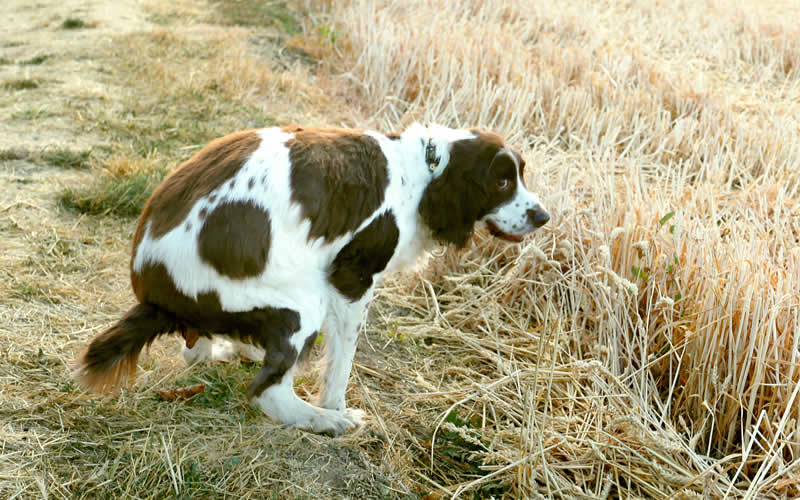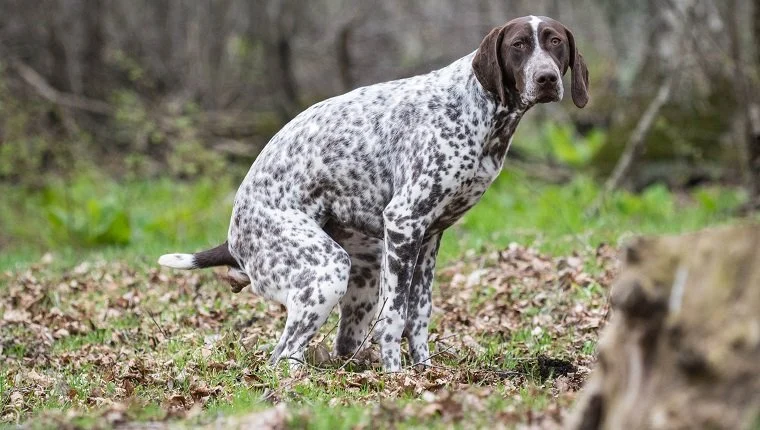Inflammation in the large intestine, often known as the colon, is referred to as colitis in dogs. The term “colitis” is most usually used to describe diarrhea or loose stools that are caused by a problem with the large intestine. Colitis in Dogs; Colitis is also known as large bowel diarrhea. These stools might be difficult to pass and cause pain when you go to the bathroom.
Table of Contents
Causes of colitis in dogs
Colitis in dogs can result from a variety of factors. Ingesting tainted food, coming into contact with diseased canines, or being exposed to a moist environment can all cause colitis. The most common cause of big bowel diarrhea in dogs is stress colitis. Whatever the source, inflammation in the colon reduces water absorption and reduces the colon’s ability to hold excrement. The characteristic symptom is regular tiny amounts of diarrhea, often accompanied by mucous or blood.

- Stress
- Indulging in a strange food or ingesting a foreign body
- An infection of the gastrointestinal tract.
- Parasites or worms.
- Allergies to certain foods
- Diseases of the immune system
- Inflammation of the bowels
- The colon has been injured or damaged.
- Pancreatitis
Symptoms of colitis in dogs

In many cases of chronic colitis, mucus or fat is present. The majority of dogs with colitis will have a strong sense of urgency and a strong need to defecate regularly. Only about a third of people who have colitis or large bowel diarrhea vomit. Weight loss is an unusual occurrence. Symptoms can appear immediately (acute), last for a few weeks, or be recurring (chronic).
- Diarrhea with blood or mucus in it
- Attempting to poo
- Vomiting
- A throbbing abdomen
- More frequent and runny feces.
- Fresh blood and/or mucous in the feces.
- Discomfort when using the restroom.
- Constipation.
- Unusual eating habits or a lack of interest in food.
- Loss of weight.
- Flatulence has increased.
- Tiredness
Diagnosis of colitis in dogs
The clinical signs and history of your pet, as well as microscopic inspection of the feces, rectal examination, cytology, and blood tests, are used to diagnose colitis. In some circumstances, additional testing such as radiography (X-rays) of the colon and intestinal tract, colonoscopy and colon biopsies, fecal cultures, barium enemas, or abdominal ultrasound may be required.
Take your dog to the vet straight away if you fear he or she has colitis. Your veterinarian will review your dog’s medical history to rule out any other issues, and will likely require a stool sample to screen for worms or other parasites.
Treatment of colitis in dogs
The treatment of colitis in dogs include
- A bland diet for a short length of time as a treatment for colitis.
- Deworming medication if your veterinarian feels worms are to blame.
- Anti-inflammatories designed specifically for the stomach
- Probiotics

Depending on the cause of colitis, there are a few therapy options. Your veterinarian would most likely try to solve the problem from a nutritional standpoint, suggesting a fasting period of 24 to 48 hours to allow the digestive tract to rest. Probiotics to promote gut health, antimicrobial medications to treat infections if present and anti-inflammatories to lower stomach inflammation and pain are a few alternative therapy choices. Inflammatory or immune-mediated colitis may be treated with anti-inflammatory or immunosuppressive medications. Medications that alter the motility of the colon may also provide clinical relief.
For most dogs, all that is required is a simple change in diet and medicine to treat the inflammation or infection in the colon. Within three to five days, the majority of dogs with stress colitis are back to normal. Further diagnostic testing should be undertaken in chronic, severe, or recurrent instances to ascertain the exact cause and effective treatment. Strict dietary control and diligent drug administration keep chronic colitis under control in many dogs.
Prevention
Colitis in dogs normally goes away quickly. If your dog is prone to illnesses like colitis, there are a few things you can do to keep it from happening again. Preventive measure include
- Feeding a specific meal advised by your veterinarian
- No treats
- Regular worming treatments
- Additional treatment from your veterinarian during a flare-up
- Avoid food scavenging
RECOMMENDED ARTICLES
- What Is Food Allergy In Dogs – 9 Guaranteed Symptoms And Treatment
- Heartworms In Dogs – Causes, 12 Exclusive Symptoms, And Treatment
- Loss Of Appetite In Dogs -18 Expert Causes, Symptoms, And Treatment
- Diabetes In Dogs – Causes, 9 Complete Risk Factors And Treatment




